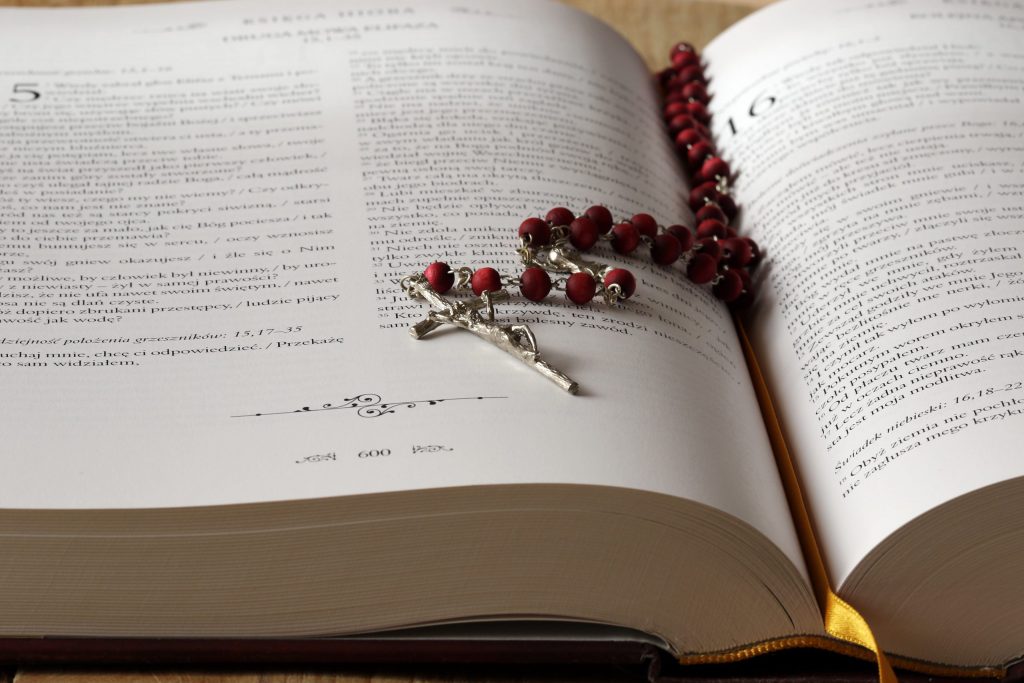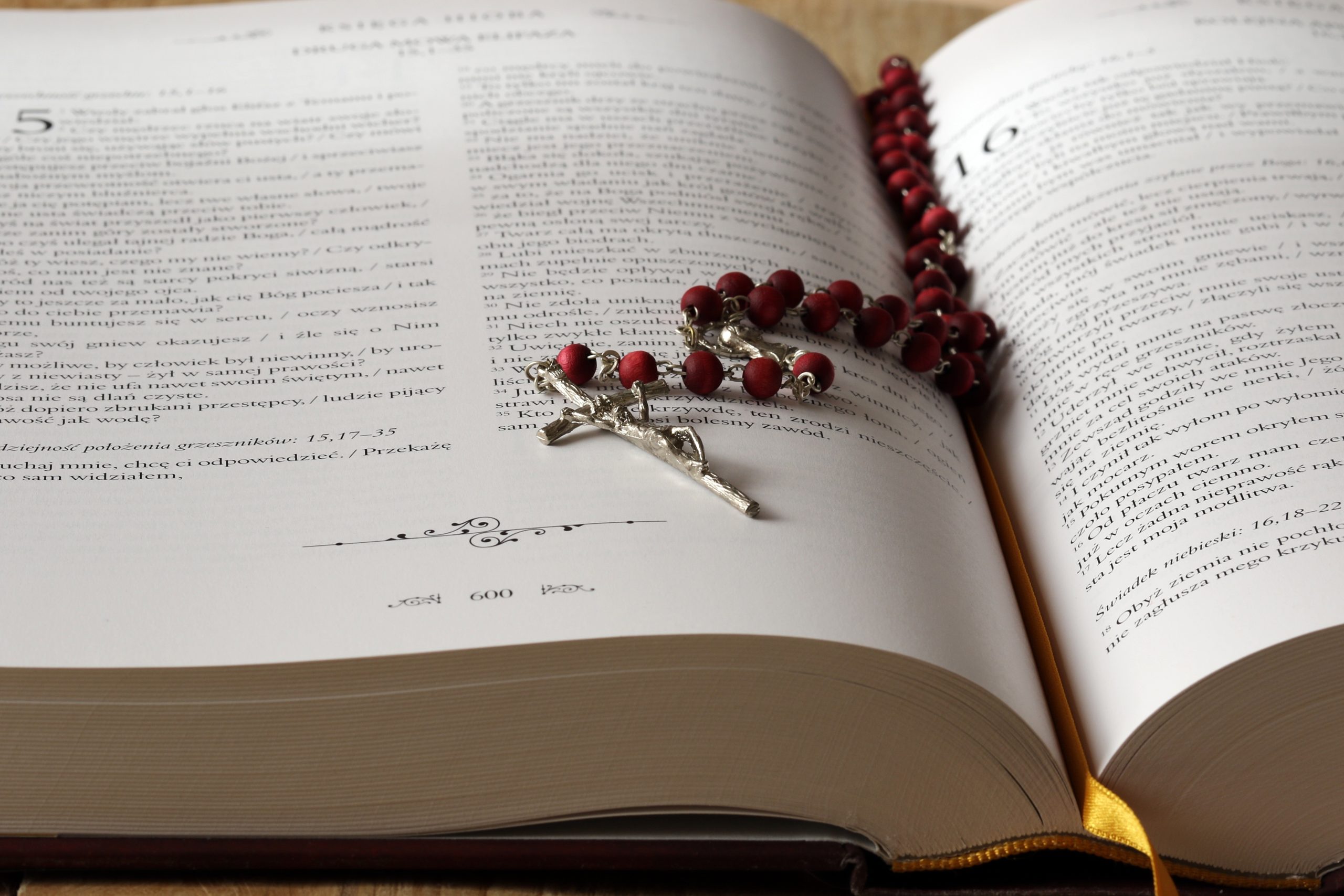Sunday, January 17:
1 Sm 3:3b-10, 19/1 Cor 6:13c-15a, 17-20/Jn 1:35-42
John 1:35-42 New Revised Standard Version Catholic Edition (NRSVCE)
35 The next day John again was standing with two of his disciples, 36 and as he watched Jesus walk by, he exclaimed, “Look, here is the Lamb of God!” 37 The two disciples heard him say this, and they followed Jesus. 38 When Jesus turned and saw them following, he said to them, “What are you looking for?” They said to him, “Rabbi” (which translated means Teacher), “where are you staying?” 39 He said to them, “Come and see.” They came and saw where he was staying, and they remained with him that day. It was about four o’clock in the afternoon. 40 One of the two who heard John speak and followed him was Andrew, Simon Peter’s brother. 41 He first found his brother Simon and said to him, “We have found the Messiah” (which is translated Anointed[a]). 42 He brought Simon[b] to Jesus, who looked at him and said, “You are Simon son of John. You are to be called Cephas” (which is translated Peter[c]).
Monday, January 18:
Heb 5:1-10/Mk 2:18-22
Mark 2:18-22 New Revised Standard Version Catholic Edition (NRSVCE)
18 Now John’s disciples and the Pharisees were fasting; and people[a] came and said to him, “Why do John’s disciples and the disciples of the Pharisees fast, but your disciples do not fast?” 19 Jesus said to them, “The wedding guests cannot fast while the bridegroom is with them, can they? As long as they have the bridegroom with them, they cannot fast. 20 The days will come when the bridegroom is taken away from them, and then they will fast on that day. 21 “No one sews a piece of unshrunk cloth on an old cloak; otherwise, the patch pulls away from it, the new from the old, and a worse tear is made. 22 And no one puts new wine into old wineskins; otherwise, the wine will burst the skins, and the wine is lost, and so are the skins; but one puts new wine into fresh wineskins.”[b]
Tuesday, January 19:
Heb 6:10-20/Mk 2:23-28
Mark 2:23-28 New American Bible (Revised Edition) (NABRE)
23 As he was passing through a field of grain on the sabbath, his disciples began to make a path while picking the heads of grain. 24 At this the Pharisees said to him, “Look, why are they doing what is unlawful on the sabbath?” 25 He said to them, “Have you never read what David did[a] when he was in need and he and his companions were hungry? 26 How he went into the house of God when Abiathar was high priest and ate the bread of offering that only the priests could lawfully eat, and shared it with his companions?” 27 Then he said to them, “The sabbath was made for man,[b] not man for the sabbath. 28 [c]That is why the Son of Man is lord even of the sabbath.”
Wednesday, January 20:
Heb 7:1-3, 15-17/Mk 3:1-6
Mark 3:1-6 New American Bible (Revised Edition) (NABRE)
Again he entered the synagogue. There was a man there who had a withered hand. 2 They watched him closely to see if he would cure him on the sabbath so that they might accuse him. 3 He said to the man with the withered hand, “Come up here before us.” 4 Then he said to them, “Is it lawful to do good on the sabbath rather than to do evil, to save life rather than to destroy it?” But they remained silent. 5 Looking around at them with anger and grieved at their hardness of heart, he said to the man, “Stretch out your hand.” He stretched it out and his hand was restored. 6 [b]The Pharisees went out and immediately took counsel with the Herodians against him to put him to death.
Thursday, January 21:
Heb 7:25—8:6/Mk 3:7-12
Mark 3:7-12 New American Bible (Revised Edition) (NABRE)
7 [a]Jesus withdrew toward the sea with his disciples. A large number of people [followed] from Galilee and from Judea. 8 Hearing what he was doing, a large number of people came to him also from Jerusalem, from Idumea, from beyond the Jordan, and from the neighborhood of Tyre and Sidon. 9 He told his disciples to have a boat ready for him because of the crowd, so that they would not crush him. 10 He had cured many and, as a result, those who had diseases were pressing upon him to touch him. 11 [b]And whenever unclean spirits saw him they would fall down before him and shout, “You are the Son of God.” 12 He warned them sternly not to make him known.
Friday, January 22:
Heb 8:6-13/Mk 3:13-19
Mark 3:13-19 New Revised Standard Version Catholic Edition (NRSVCE)
13 He went up the mountain and called to him those whom he wanted, and they came to him. 14 And he appointed twelve, whom he also named apostles,[a] to be with him, and to be sent out to proclaim the message, 15 and to have authority to cast out demons. 16 So he appointed the twelve:[b] Simon (to whom he gave the name Peter); 17 James son of Zebedee and John the brother of James (to whom he gave the name Boanerges, that is, Sons of Thunder); 18 and Andrew, and Philip, and Bartholomew, and Matthew, and Thomas, and James son of Alphaeus, and Thaddaeus, and Simon the Cananaean, 19 and Judas Iscariot, who betrayed him. Then he went home;
Saturday, January 23:
Heb 9:2-3, 11-14/Mk 3:20-21
Hebrews 9:2-3, 11-14 New Revised Standard Version Catholic Edition (NRSVCE)
2 For a tent[a] was constructed, the first one, in which were the lampstand, the table, and the bread of the Presence;[b] this is called the Holy Place. 3 Behind the second curtain was a tent[c] called the Holy of Holies. 11 But when Christ came as a high priest of the good things that have come,[a] then through the greater and perfect[b] tent[c] (not made with hands, that is, not of this creation), 12 he entered once for all into the Holy Place, not with the blood of goats and calves, but with his own blood, thus obtaining eternal redemption. 13 For if the blood of goats and bulls, with the sprinkling of the ashes of a heifer, sanctifies those who have been defiled so that their flesh is purified, 14 how much more will the blood of Christ, who through the eternal Spirit[d] offered himself without blemish to God, purify our[e] conscience from dead works to worship the living God!

